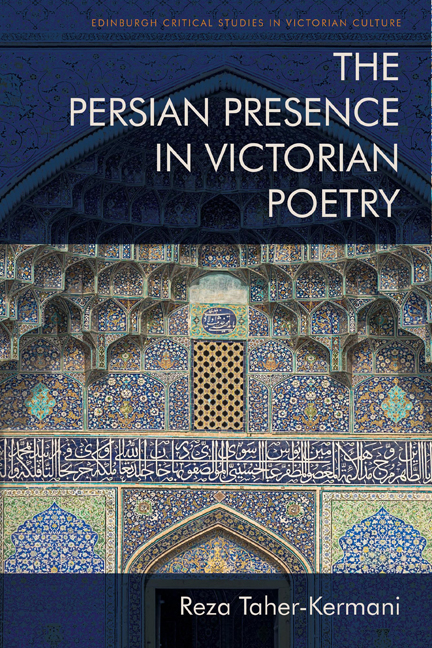Book contents
3 - ‘Sohrab and Rustum’
Published online by Cambridge University Press: 05 March 2024
Summary
‘Sohrab and Rustum’ (1853) is an adaptation of the story of ‘Sohrab’ in Abu’l-Qasim Firdausi's Shahnameh (‘the Book of Kings’). Firdausi, however, is transfused in Matthew Arnold's poem indirectly and without consideration of his specific linguistic or poetic traits. Arnold did not know Persian. He read, in French, Charles Augustin Sainte-Beuve's ‘Le Livre des Rois, par le poëte persan Firdousi, publié et traduit par M. Jules Mohl’, a review of Julius von Mohl’s French translation of the Shahnameh which featured a synopsis of ‘Sohrab’. Arnold did not have access to Mohl's French translation either, though he had indirect access to it through Sainte-Beuve's rendition of Mohl's ideas and, in some cases, his actual phrasing. In this manifold sequence of textual interactions, only Mohl could, in fact, read Firdausi in its original language, and neither Sainte-Beuve, nor Arnold, was in a position to judge the value of Mohl's scholarship or the fidelity of his translation. Sainte-Beuve approved of Mohl because their ideas on epic poetry coincided, and Arnold trusted the fidelity of Sainte-Beuve's judgement and rendition of Mohl for the same reason. This complex process of cultural transmission has conditioned Arnold's appropriation of Firdausi's story, setting, and characters in ‘Sohrab and Rustum’. But however secondary and indirect Arnold’s understanding of Firdausi and the Shahnameh may have been, his rendition of ‘Sohrab’ remains unusually faithful to its original. There are, of course, diversions and variations, and it is difficult to discern why Arnold's fidelity to Firdausi oscillates through the poem. The explanation must be sought at a more abstract level, which belongs to Arnold's own idea of what he was doing in taking hold of the poem in the first place. But leaving aside psychological explanations, which may reveal that Arnold was perhaps wrestling with his own over-mighty father, my purpose in this chapter is to first reveal, then examine, the processes at work in the conception of ‘Sohrab and Rustum’. To do so, I will begin by surveying the sociopolitical developments that led not only to the formation of the Shahnameh but to its recognition as a book of epic poetry.
- Type
- Chapter
- Information
- The Persian Presence in Victorian Poetry , pp. 114 - 145Publisher: Edinburgh University PressPrint publication year: 2020



